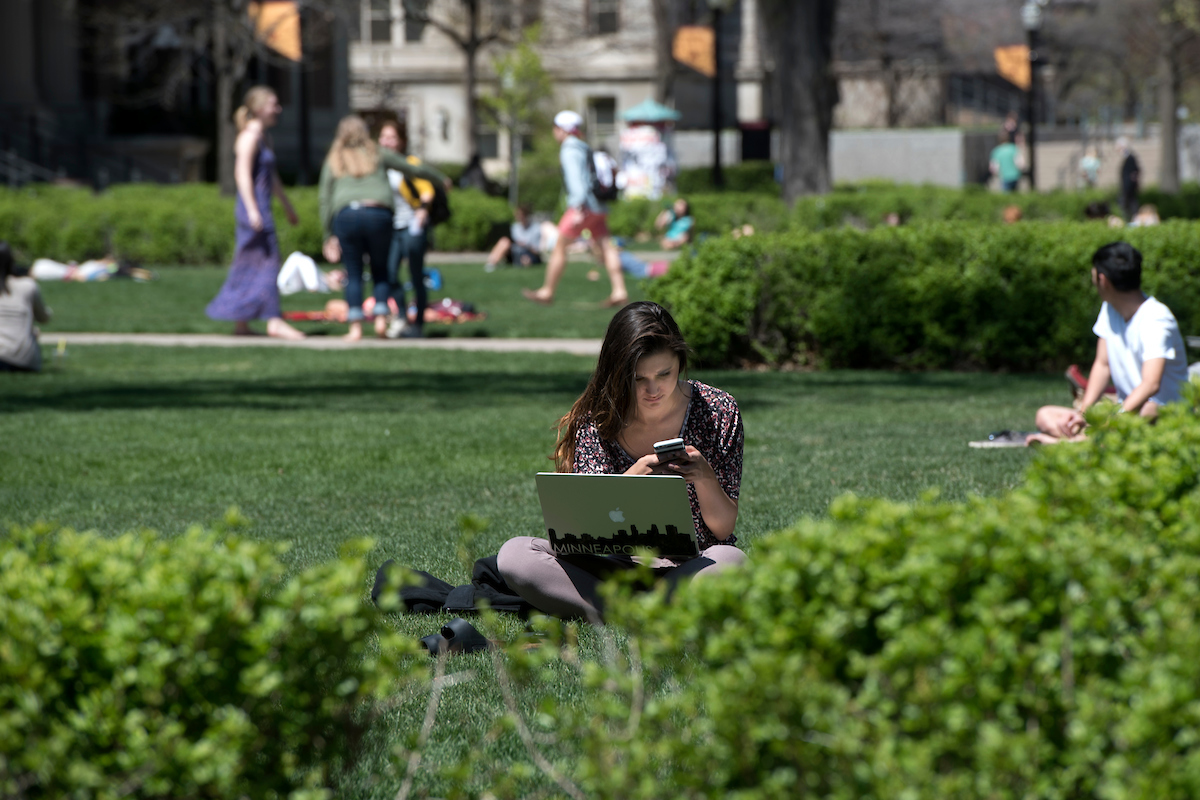
- Details
- By Native News Online Staff
The University of Minnesota's College of Education and Human Development (CEHD) today announced it has been awarded a $1,155,000 grant from the Shakopee Mdewakanton Sioux Community (SMSC) to develop and offer an Indigenous Education for All online course free to the public.
The grant emerged from the SMSC’s Understand Native Minnesota campaign to improve the Native American narrative in the state. When SMSC reached out to CEHD to support its efforts, the College was grateful and quick to be of service. CEHD’s work on this project aligns with the recommendations of the 2023 Towards Recognition and University-Tribal Healing (TRUTH) report, which advised steps for the University of Minnesota community to be in better relations with Indigenous peoples.
“We are honored to partner with Shakopee Mdewakanton Sioux Community to increase Minnesota’s understanding of Native life and practices across the region,” said CEHD Dean Michael Rodriguez. “This project is supported by CEHD’s mission to contribute to a just and sustainable future through engagement with local and global communities to enhance human learning and development across the lifespan.”
This project was inspired by the success of the University of Alberta’s highly regarded Indigenous Canada course. This new course aims to increase awareness and knowledge of Tribal Nations in Minnesota, their history and traditions, as well as contemporary Tribal life and governance. The primary target audiences are K-12 educators, school administrators, high school students, and student families.
“Our tribe’s goal is to improve the narrative taught in classrooms about Native peoples, which is too often incomplete or inaccurate,” SMSC Chairman Cole Miller said. “We are glad to provide this grant to the University of Minnesota to develop this online course to offer all Minnesotans – and students especially – a reliable, accurate introduction to the history, cultures and modern experiences of Native Americans here in Minnesota.”
Cassie Scharber, assistant dean of online and professional education and associate professor of learning technologies, and George Veletsianos, professor of learning technologies, are leading the development of the online course. They will be guided and supported by a community advisory council and a curriculum committee that consists of Indigenous education experts and leaders, knowledge keepers and content experts, curriculum designers, learning technologists, and others.
The free online course is expected to launch by mid-2025.
More Stories Like This
Bard College Center for Indigenous Studies (CfIS) Hosts Annual Symposium With Keynote Speaker Miranda Belarde-Lewis on March 9–10American Indian College Fund Announces Spring 2026 Faculty Fellow Cohort
Navajo Nation Signs $19 Million Diné Higher Education Grant Fund Act into Law
Dr. Shelly C. Lowe to Be Inaugurated as IAIA President March 26–27
Tlingit Language Courses Expand for Students to Learn With Families At-Home
Help us defend tribal sovereignty.
At Native News Online, our mission is rooted in telling the stories that strengthen sovereignty and uplift Indigenous voices — not just at year’s end, but every single day.
Because of your generosity last year, we were able to keep our reporters on the ground in tribal communities, at national gatherings and in the halls of Congress — covering the issues that matter most to Indian Country: sovereignty, culture, education, health and economic opportunity.
That support sustained us through a tough year in 2025. Now, as we look to the year ahead, we need your help right now to ensure warrior journalism remains strong — reporting that defends tribal sovereignty, amplifies Native truth, and holds power accountable.
 The stakes couldn't be higher. Your support keeps Native voices heard, Native stories told and Native sovereignty defended.
The stakes couldn't be higher. Your support keeps Native voices heard, Native stories told and Native sovereignty defended.
Stand with Warrior Journalism today.
Levi Rickert (Potawatomi), Editor & Publisher


